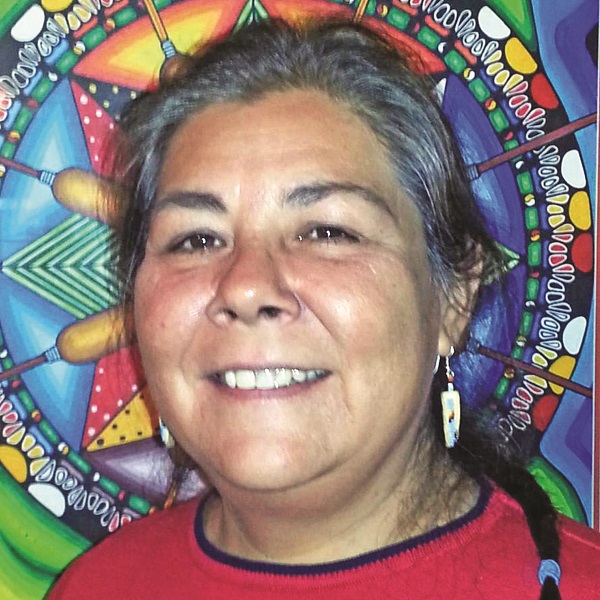General News » News
We need to fight women being seen as “expendable” in society: Indigenous activist
February 26, 2015 · 0 Comments

By Brock Weir
Living in Downtown Toronto was rough as a young woman, says Becky Big Canoe.
She was accosted. She was propositioned. When men passed by saying, “It’s an Indian”, she says she knew “exactly what their intent was by saying that.”
“I couldn’t feel safe,” she says.
The word “Indian” has the power to conjure up very different images from person to person. For some growing up with that label it was a moniker that was defined strictly by living under the Indian Act but, according to Ms. Big Canoe, there has been a resurgence of knowledge about their cultures and a “need to express who we are in our own terms.
“When I speak to a crowd, or when I am amongst my own folks, I identify myself as, ‘Woman of the Original People,’” she explains in her native language. “I have reclaimed that much of my own culture to be able to identify myself as such, and I want to see our girls being taught the same thing because that instills a certain pride in knowing who you are and declaring it. We are no longer defined by the government in that way.”
That is a message Ms. Big Canoe hopes to impart to the community when she participates in a discussion panel on Women’s Rights at the Aurora Public Library next Thursday, March 5. Held in conjunction with International Women’s Day, the panel brings together a number of women who have dedicated themselves to advocate on behalf of women’s rights, rights which are, at the end of the day, the rights of all.
Ms. Big Canoe, by her own admission, is a relative newcomer when it comes to advocating for the rights of women. Although her own voyage of self-discovery and rediscovery began decades before, she says she had her watershed moment in 2011, delving into social media and seeing report after report on missing and murdered Aboriginal women, many cases of which remain unsolved to this day.
“That was the catalyst,” she says of her drive in using her voice to bring attention to this very important issue. “It was just overwhelming. Then I saw women activists who had been working on this issue try to address the national assembly of our chiefs in Gatineau and the video focused on the women talking before it panned the room and there was nobody there. She was basically speaking to an empty room. I thought that was so negligent of our chiefs to show that kind of disregard and we have to hold our own people accountable as well. If our own chiefs don’t care, how can we expect larger society to care? It was a hard position to take, but that was the reality we’re facing.”
Since then, she has been on a journey, along with scores of other Aboriginal women calling on the Federal Government, as well as their own systems, to hold an enquiry into what is happening. The numbers of missing and murdered Aboriginal women vary from 500 to 3,000 across the country.
As they have crisscrossed the country, Ms. Big Canoe says they have had family members come up and tell you of relatives who have gone missing, cases which were not officially reported. In some cases, she chalks this discrepancy up to authorities not acting on tips, but also the feeling amongst some Aboriginal people that there is “a certain futility” in calling the authorities because “historically they are used to not being listened to.”
Sometimes, she adds, calling the authorities can make matters worse, an effect of “systemic racism.”
“We are completely marginalized,” says Ms. Big Canoe on how Canada’s Aboriginal heritage is handled in school history lessons. “The dominant part of [the discussion] is that we’re just simply remnants of the past, we’re leaches on the taxpayer. The amount of knowledge out there is so minimal and when that case exists, it is easy to be racists.”
An enquiry into missing and murdered Aboriginal women will help shine a light on issues that “contribute to our women being seen as so expendable in society,” she adds. That view makes women vulnerable. If even just that light is shone on the case, it would be a significant achievement.
“We need to get into the consciousness of the Canadian people,” she says. “Not only does this mean that many women have gone missing and have been murdered, the lack of investigation into that means that there are many, many killers out there on the loose, and does Canada want that? Why do they want to be ignorant of that fact? That is why we need to get these questions answered.
“[At the upcoming panel] I would like to say that the lives of indigenous people matter, just like all people’s lives matter. I think we have commonalities amongst us and a lot of times women feel like they live among the marginalized; marginalized by society and legislation. We have to discover those commonalities that we have and figure out ways to deal with it – in a spirit of sisterhood.”











